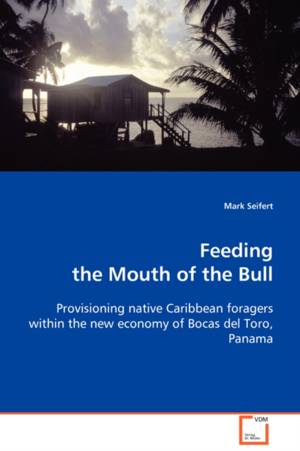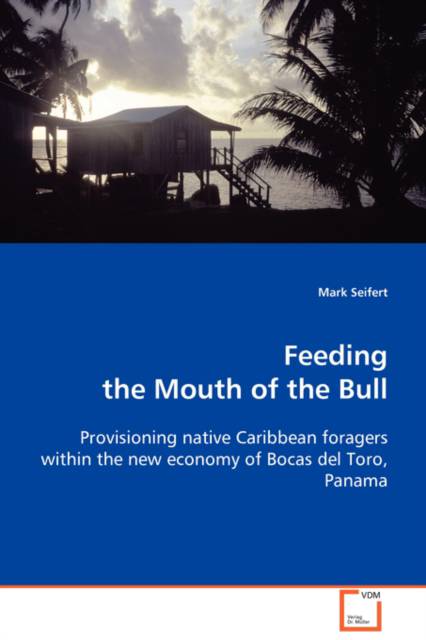
Bedankt voor het vertrouwen het afgelopen jaar! Om jou te bedanken bieden we GRATIS verzending (in België) aan op alles gedurende de hele maand januari.
- Afhalen na 1 uur in een winkel met voorraad
- In januari gratis thuislevering in België
- Ruim aanbod met 7 miljoen producten
Bedankt voor het vertrouwen het afgelopen jaar! Om jou te bedanken bieden we GRATIS verzending (in België) aan op alles gedurende de hele maand januari.
- Afhalen na 1 uur in een winkel met voorraad
- In januari gratis thuislevering in België
- Ruim aanbod met 7 miljoen producten
Zoeken
Feeding the Mouth of the Bull
Provisioning native Caribbean foragers within the new economy of Bocas del Toro, Panama
Mark Seifert
Paperback | Engels
€ 115,95
+ 231 punten
Omschrijving
Aimed at economic anthropologists and scholars of
tropical human ecology, this monograph details the
food provisioning system of the maritime Guaymi of
the Bocas del Toro Archipelago in the rural
Caribbean of Panama and attempts to situate the
Guaymi within a larger theoretical context
related to non-domesticated provisioning and
suggests how anthropologists should think about
people who engage in foraging activity, but not
exclusively.The maritime Guaymi have for decades
been identified as subsistence farmers but have
also hunted and fished the forests and seas
to gain essential and substantial items of
sustenance. This diachronic study details
multiple facets of the Guaymi food production system
and proposes that micro-economic provisioning
clusters exist and serve as adaptive mechanisms.The
discovery and examination of the maritime Guaymi
food production system informs on a larger
theoretical construct concerning the concept
of part-time foragers .Using the Guaymi as an
ethnographic example, a foraging continuum is
identified and assessed and perspectives on how
anthropology can begin to evaluate this sustenance
group is proposed.
tropical human ecology, this monograph details the
food provisioning system of the maritime Guaymi of
the Bocas del Toro Archipelago in the rural
Caribbean of Panama and attempts to situate the
Guaymi within a larger theoretical context
related to non-domesticated provisioning and
suggests how anthropologists should think about
people who engage in foraging activity, but not
exclusively.The maritime Guaymi have for decades
been identified as subsistence farmers but have
also hunted and fished the forests and seas
to gain essential and substantial items of
sustenance. This diachronic study details
multiple facets of the Guaymi food production system
and proposes that micro-economic provisioning
clusters exist and serve as adaptive mechanisms.The
discovery and examination of the maritime Guaymi
food production system informs on a larger
theoretical construct concerning the concept
of part-time foragers .Using the Guaymi as an
ethnographic example, a foraging continuum is
identified and assessed and perspectives on how
anthropology can begin to evaluate this sustenance
group is proposed.
Specificaties
Betrokkenen
- Auteur(s):
- Uitgeverij:
Inhoud
- Aantal bladzijden:
- 220
- Taal:
- Engels
Eigenschappen
- Productcode (EAN):
- 9783639066487
- Verschijningsdatum:
- 27/11/2008
- Uitvoering:
- Paperback
- Formaat:
- Trade paperback (VS)
- Afmetingen:
- 152 mm x 229 mm
- Gewicht:
- 299 g

Alleen bij Standaard Boekhandel
+ 231 punten op je klantenkaart van Standaard Boekhandel
Beoordelingen
We publiceren alleen reviews die voldoen aan de voorwaarden voor reviews. Bekijk onze voorwaarden voor reviews.









